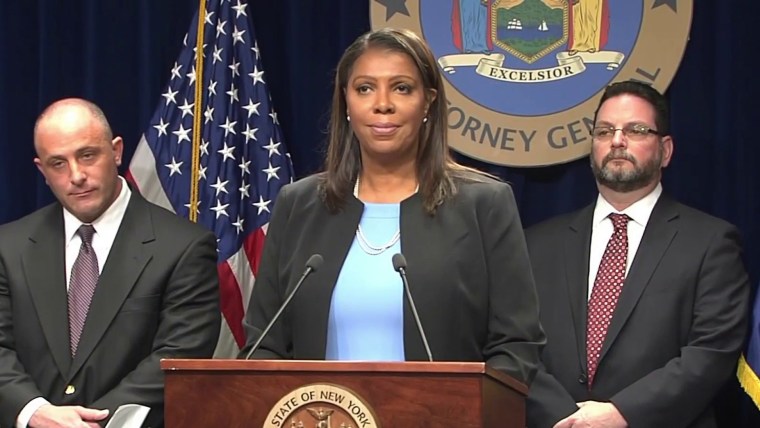Over the course of nearly two years, Special Counsel John Durham’s investigation into the Russia investigation hasn’t amounted to much. The probe has, however, led to one indictment, which has proven to be provocative in unexpected ways.
Last September, the prosecutor charged cybersecurity attorney Michael Sussmann for allegedly having lied to the FBI. Sussman’s defense attorneys have tried to have the case dismissed, and their pushback is credible: There’s evidence that Durham’s indictment was misleading, relying on selective quotes and omitting relevant details from their proper context. In December, Sussman’s lawyers disclosed evidence that raised additional doubts about the reliability of the charges.
Indeed, as we’ve discussed, the whole case is quite odd. Sussman met with the FBI nearly six years ago to discuss alleged connections between the Trump Organization’s computers and the Kremlin-linked Alfa Bank. According to Durham, Sussman claimed he wasn’t acting on Clinton’s behalf when he secretly was. Sussman’s defense team has said he never claimed not to have clients, and it didn’t much matter whom he worked for anyway.
The story took a painful turn seven days ago, when the special counsel’s office made a court filing that sent Donald Trump, conservative media, and much of the Republican Party into hysterics. Though the right relied on a twisted version of reality, Republicans said Durham had presented proof that Hillary Clinton’s operatives had “spied on” the former president.
That wasn’t true. The right didn’t care.
The Trump/GOP tantrum did not go unnoticed by those participating in the Sussman case. The New York Times reported overnight:
John H. Durham, the Trump-era special counsel scrutinizing the investigation into Russia’s 2016 election interference, distanced himself on Thursday from false reports by right-wing news outlets that a motion he recently filed said Hillary Clinton’s campaign had paid to spy on Trump White House servers.
In the wake of this week’s mania in Republican circles, Sussman’s defense lawyers accused the special counsel’s office of having made needlessly provocative claims in order to “politicize this case, inflame media coverage and taint the jury pool.”
By way of a defense, Durham told the court in a new filing, “If third parties or members of the media have overstated, understated or otherwise misinterpreted facts contained in the government’s motion, that does not in any way undermine the valid reasons for the government’s inclusion of this information.”
Implicit in that defense is an acknowledgement that the special counsel’s office does not want to be associated with this week’s hysterics in far-right circles.
What’s more, while the details get a little complicated, one of the key elements that’s emerged this week is that Trump and other GOP conspiracy theorists had a calendar problem: The relevant White House network data appeared to come from the Obama era, before Trump even took office. Durham’s filing from last week didn’t acknowledge this timeline, which led Republicans and conservative media to make assumptions that were wrong.
With this in mind, the new report from the Times added:
Mr. Durham did not directly address that basic factual dispute. But his explanation for why he included the information about the matter in the earlier filing implicitly confirmed that Mr. Sussmann had conveyed concerns about White House data that came from before Mr. Trump was president.
According to the special counsel’s new filing, Durham was exploring Mr. Sussmann’s potential conflicts of interest, one of which involved a lawyer who worked for the White House “during the relevant events that involved” the White House.
That lawyer worked in Barack Obama’s White House, not Trump’s.
All of which is to say, this week’s far-right conspiracy theories were already difficult to take seriously. In the wake of Durham’s new filing, they suddenly look a little worse.

